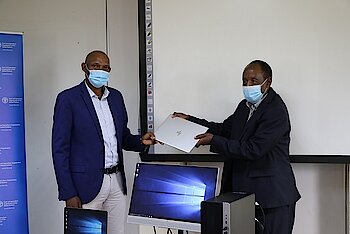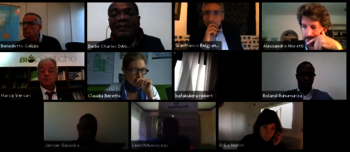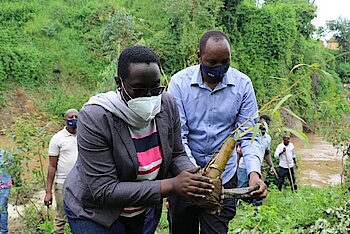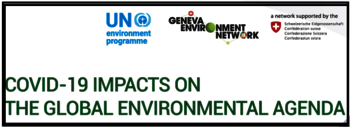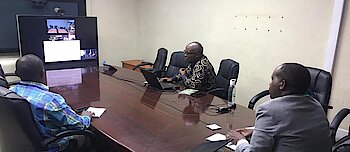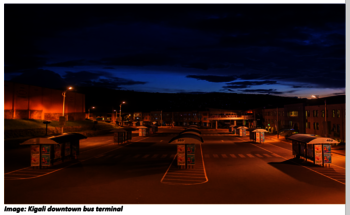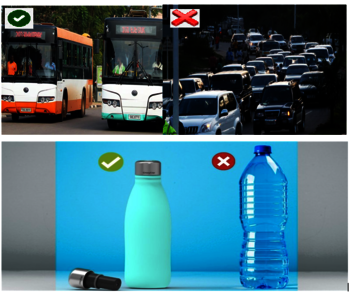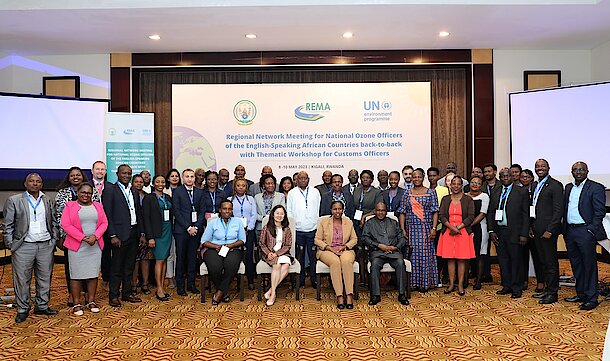
NATIONAL OZONE OFFICERS MEET IN KIGALI TO DISCUSS THE IMPLEMENTATION OF MONTREAL PROTOCOL AND ITS KIGALI AMENDMENT
The Rwanda Environment Management Authority (REMA) in collaboration with the United Nations Environment Programme (UNEP)’s OzonAction has organized a five-day regional network meeting (from 8-12 May 2023) for National Ozone Officers of the English-Speaking African countries back-to-back with Thematic Workshop for customs Officers.
The meeting brought together National Ozone Officers from African countries as well as representatives of partner-organisations to exchange experiences, develop skills, and share knowledge to fulfill their obligations under the Montreal Protocol on Substances that Deplete the Ozone Layer.
The meeting is also part of the Regional Network service provided by OzonAction’s Compliance Assistance Programme (CAP) to (developing) countries as part of its role as an Implementing Agency of the Multilateral Fund for the Implementation of the Montreal Protocol.
National Ozone Officers from Angola, Botswana, Egypt, Eritrea, Ethiopia, Eswatini, Gambia, Ghana, Kenya, Lesotho, Liberia, Malawi, Mauritius, Mozambique, Namibia, Nigeria, Seychelles, Sierra Leone, Somalia, South Africa, South Sudan, Tanzania, Uganda, Zambia and Zimbabwe are attending the meeting, together with representatives from partner-organisations including the United Nations Industrial Development Organisation (UNIDO), the United Nations Development Programme (UNDP), UNEP, Ozone Secretariat and the German Agency for International Cooperation (GIZ).
“As you all know; the ozone layer is a vital shield that protects us from harmful ultraviolet radiation from the sun. The depletion of the ozone layer due to the release of ozone-depleting substances (ODS) is a global problem that requires everyone’s action to address it” said Juliet Kabera, Director General of REMA.
“The government of Rwanda maintains that a healthy ozone layer and climate are key to meeting all of the sustainable development goals, since the Montreal Protocol and its Kigali Amendment protect people and Mother Earth” she added.
Though the journey is still long, Rwanda has realized important achievements regarding the implementation of the Montreal Protocol.
They include its contribution to the development the Kigali Amendment, the ratification of the Kigali Amendment, reduction in consumption of the ODS by 57%, the promotion of the adoption of low Global Warming Potential alternatives to HFCs by establishing the “National Cooling Strategies”, the establishment of the online application system for licensing the import and export of controlled refrigerants and appliance containing HFCs, and those which are energy efficient, and the establishment of Africa Centre of Excellence for Sustainable Cooling and Cold Chain (ACES) among others.
Though some countries have put in place measures to phase out ODS, Patrick Salifu, the regional coordinator for the Montreal Protocol in Anglophone African Countries, said there are still some challenges which undermine efforts invested in the ozone layer recovery, including the illegal trade of ODS in certain African countries.
“You find a country is doing all it can do to phase out but beside you find other people illegally trading ODS. Mainly it’s the issue of illegal trade, in most of the African countries, that is undermining the efforts that we are doing in ozone layer recovery.” He said.
Hope for Ozone layer recovery
Despite these challenges, there is hope for the restoration of the ozone layer. Recent studies have shown that the ozone layer is on track to heal completely by the middle of this century.
This is due to various initiatives and policies, including the Kigali Amendment to the Montreal Protocol, which was adopted in 2016. The amendment was designed to eliminate the production and consumption of hydrofluorocarbons (HFCs).
Among other facts, it should be noted that various African countries, such as Rwanda and Kenya, have made significant progress in implementing the Montreal Protocol. They have accomplished this by prohibiting the importation, exportation, and use of products containing ODS, and have implemented strict enforcement measures to ensure compliance.
“You can hear figures like 90% of the gases that were destroying Ozone layer were successfully phased out. But restoration will take time that’s why it is predicted that by 2060, the ozone layer will get restored to its original shape.”
A thematic workshop will also be conducted to facilitate discussion between Ozone Officers and Customs officers from countries attending the meeting.
The workshop aims to identify current practices and challenges and to brainstorm and agree on an approach to strengthen the enforcement of licensing systems. Customs managers will be involved as they are the ones who deal with the importation and exportation of goods in their respective countries.
Topics
More posts
REMA receives computing equipment provided by FAO to enhance Greenhouse Gases inventory
Rwanda Environment Management Authority (REMA) has received computing equipment that will be used for enhancing the Greenhouse Gases (GHG) national…
Rwanda-Italy Investors and entrepreneurs discussed how to explore Green Investment opportunities
This webinar is the third virtual dialogue that gather the Rwandan and Italian entrepreneurs, investors and institutions for exploring the green…
Rwanda’s NAP Project funded by GEF was launched
The Global Environment Facility (GEF)-funded $6 million project “Building the capacity of Rwanda’s government to advance the National Adaptation…
Rwanda Pledges emissions cut of 38% in its climate action plan by 2030
Rwanda as a signatory to the Paris Agreement under which countries are due to update or communicate their 2030 emission-reduction plans, it submitted…
The Geneva Environment Dialogues discussed the impacts of the COVID-19 on the global climate change agenda
The dialogues took place on Tuesday 19 May, 2020 from 9: 00 to 9:50 on Facebook live, as way of communicating in this time of COVID-19.
this session…
Assessment of Rwanda’s vulnerability to climate change was presented to local authorities
Rwanda Environment Management Authority (REMA), with the logistical support of Ministry of Local Government (MINALOC), hold a video conference with…
Coronavirus responses proves the World can act on Climate Change
The COVID-19 pandemic has provoked a global response unlike anything we have seen before. Governments have witnessed transformational changes that…
COP 26 postponed due to the disruption caused by COVID-19
This crucial climate summit is the 26th session of conference of Parties (COP26) to the UNFCCC and it was scheduled from 9-19 November 2020 in…
Be self-accountable to tackle Climate Change and save environment
Climate change has already begun to impact our planet in more ways than we can think. Temperatures continue to rise throughout the planet and we are…
